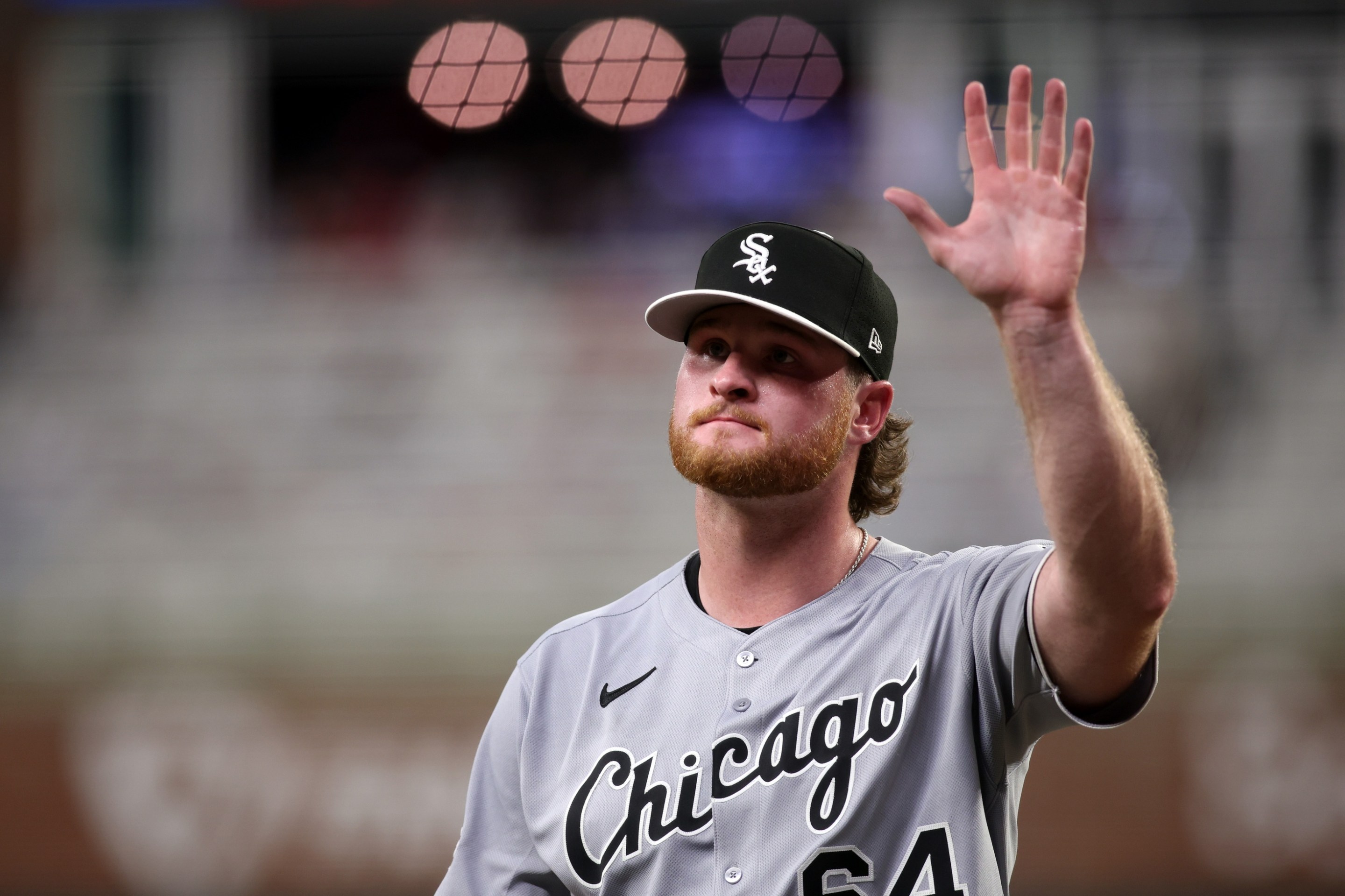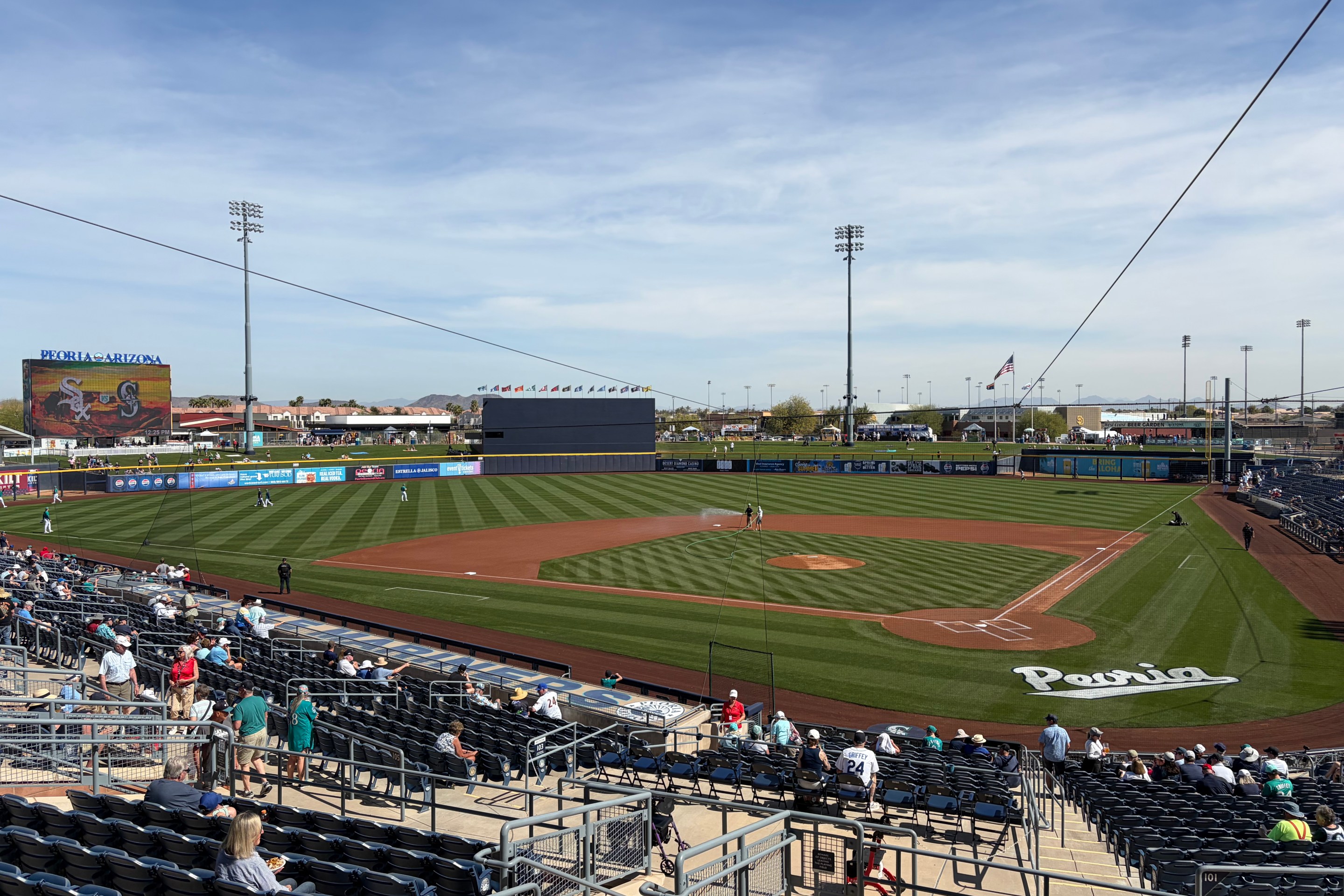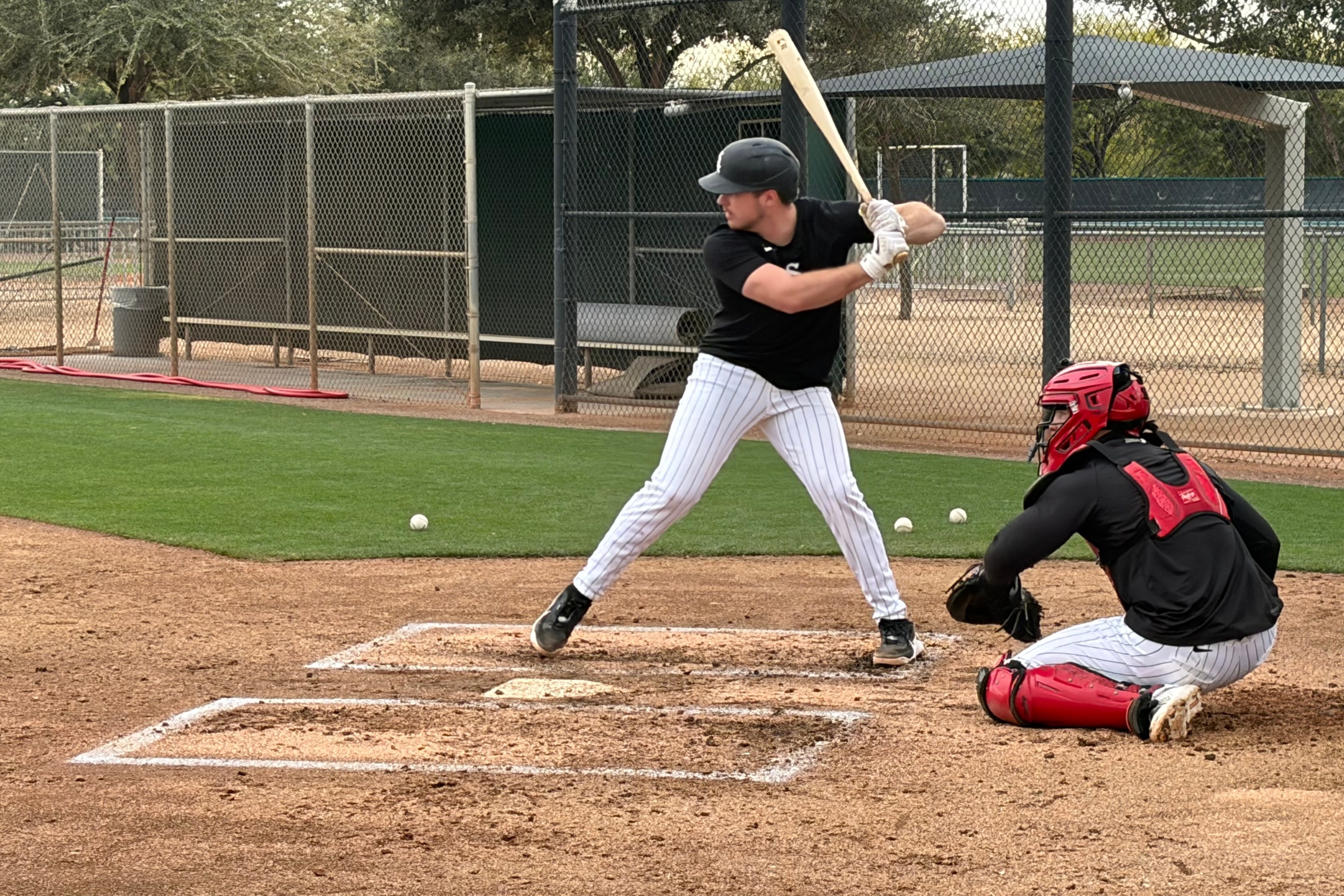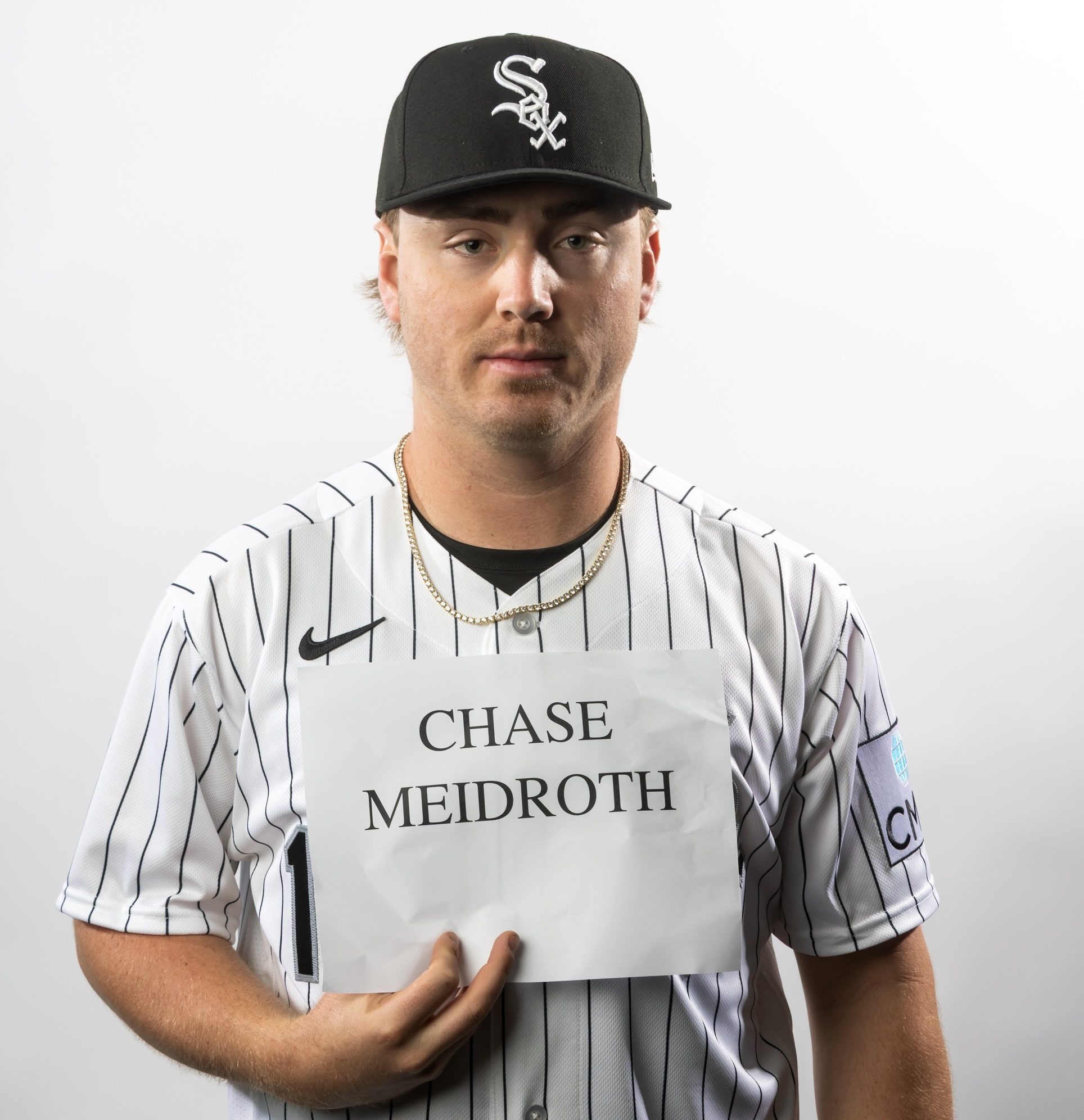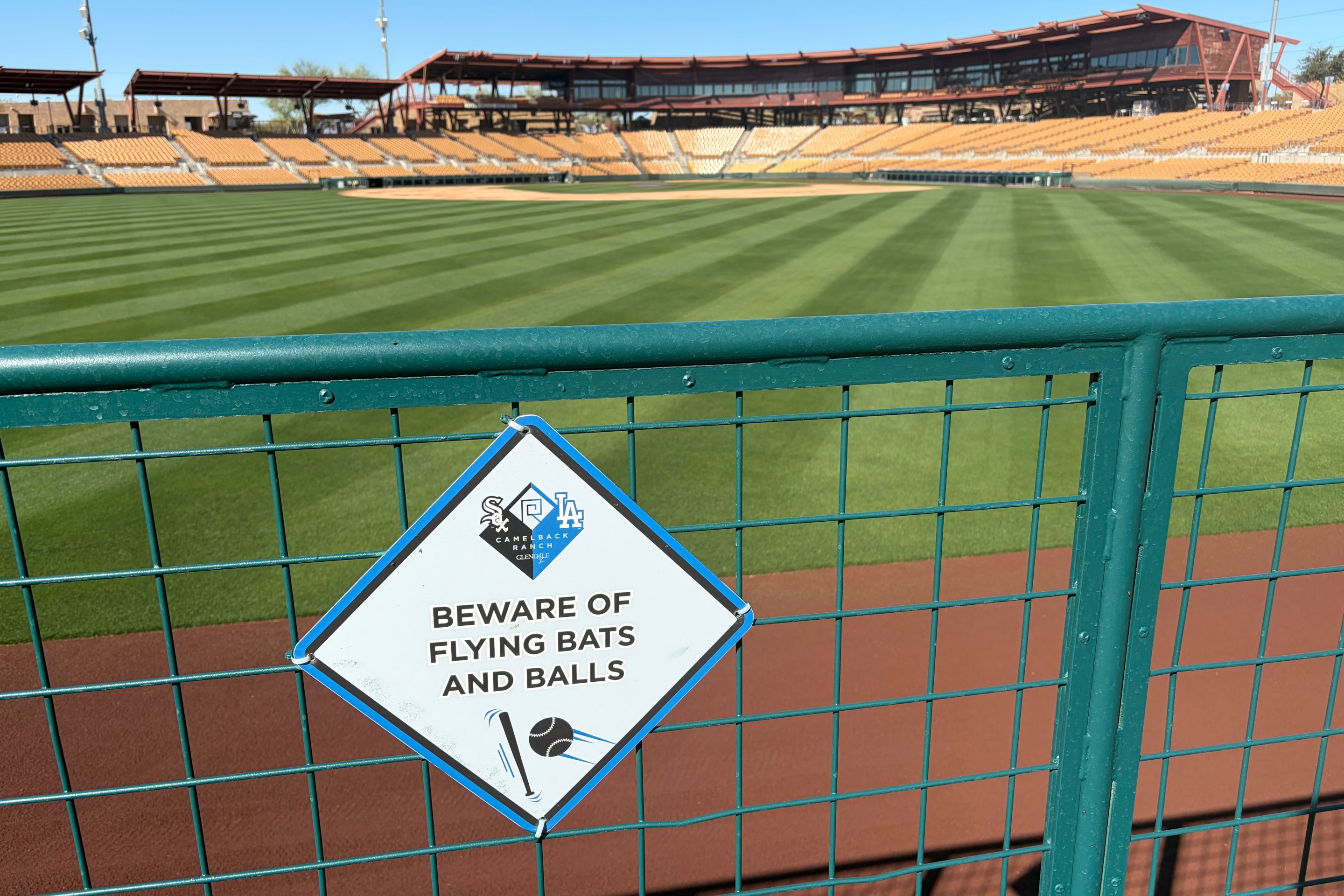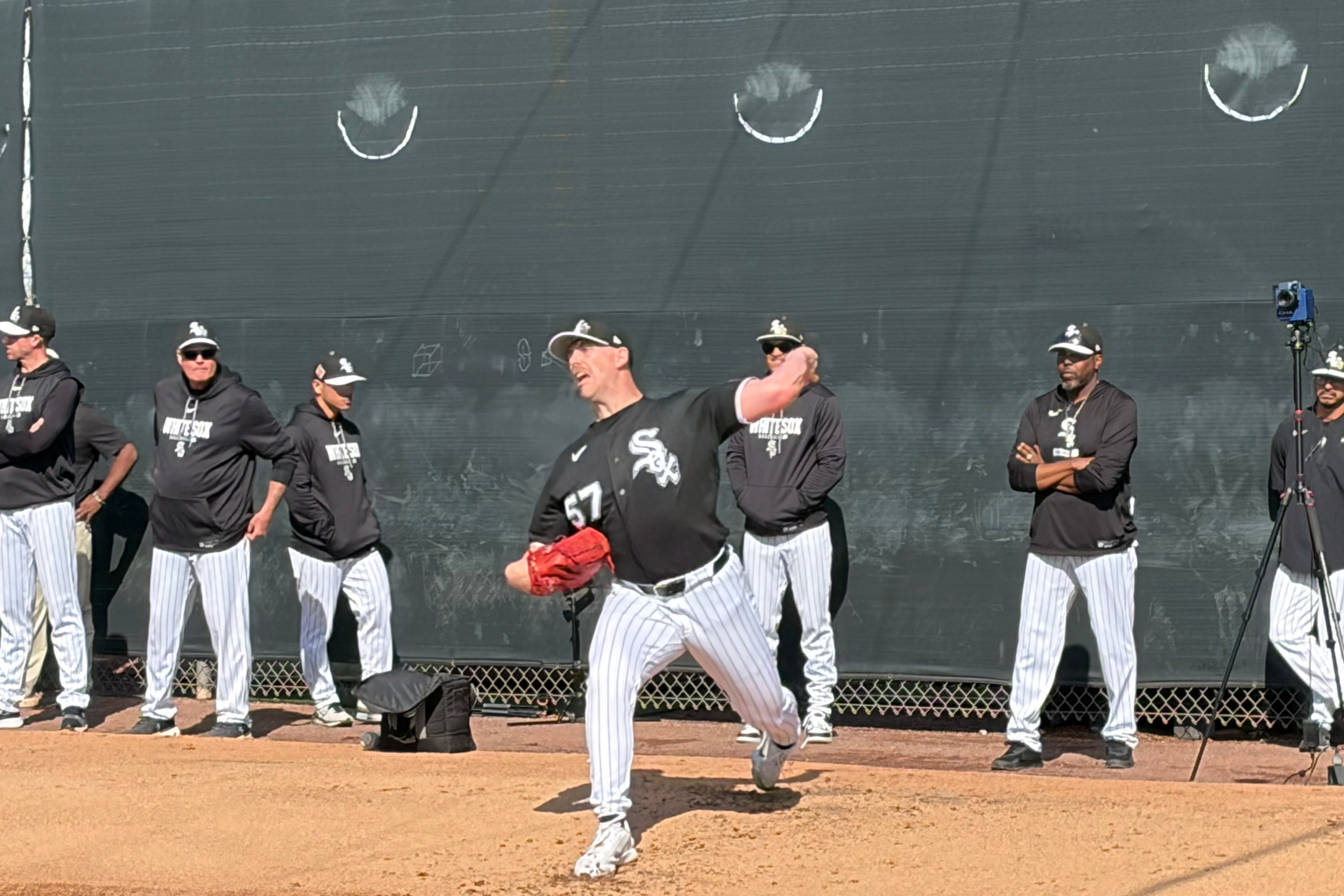Given the dubious nature of Shane Smith's selection to the All-Star Game, going unnoticed would've been an upper-percentile outcome. He instead almost became Public Enemy No. 1 in Arizona when he entered Tuesday's showcase in the eighth inning and hit Eugenio Suarez on the hand with his fourth pitch of the evening.
Smith flirted with disaster, but he dodged it in all respects. He converted his other chance to record an out before Joe Torre came out to take the ball from him, Andrés Muñoz stranded the inherited runner to keep Smith's ERA at 0.00, and the X-rays on Suarez's hand were negative.
Smith's nod made a couple specific kinds of history -- the second Rule 5 pick to make it in his draft year, and the first White Sox rookie pitcher to do so. But he also had a case for being the least-qualified All-Star in White Sox history, not just because his numbers descended to thoroughly average after ending the first half with four rough starts, but because his 86 ⅔ innings are the only ones he's thrown in the majors.
In terms of in-season performances, you can find a number of equally unimpressive White Sox All-Stars when you mine the list -- a Ray Scarborough here, a Jim Wilson there, or any number of defensive-minded catchers where you had to be there to appreciate them, I guess. They just don't stand out as much because they all had reputations to trade on, whereas Smith made it simply because the sole challenger for the team's mandatory rep didn't join the team until late May.
That said, Smith can take solace in the fact that he's not the owner of the least-flattering pitching line for a White Sox pitcher who made the All-Star Game. He wouldn't even hold that title if you limited it to Smiths.
⚙️⚙️⚙️
Enter Edgar Smith -- Eddie Smith to some -- who pitched from the White Sox in six seasons from 1939 to 1946. He made the All-Star team in 1941 and 1942, picking up the win in the former, even though he gave up a two-run shot to Arky Vaughan that put the AL further behind, 5-2. (A walk-off three-run homer by Ted Williams made up for it.)
His 1941 season was legitimately excellent. Smith was all over the American League leaderboards in important categories like innings (263 ⅓, good for third), ERA (3.18, sixth) and complete games (21). It was his best season in just about every regard with exception of his record, as he finished the season 13-17 thanks to some hard luck. Time after time, Smith started something he couldn't finish. Among his losses were a game where he threw a fateful wild pitch with the bases loaded and two outs in the ninth to lose 1-0, and one where he gave up a walk-off single after 15 ⅔ innings to lose 3-2.
And yet that would pale in comparison to the support he received the following year, because when the 1942 All-Star Game was played, Smith made the roster with a record of 2-13.
His season started with a pair of walk-off losses with two outs in the ninth -- a single in a 1-0 loss to Cleveland, a homer in a 2-1 loss to Detroit -- and it rolled downhill from there. He ended up starting the season 0-10 over 11 starts, with the White Sox scoring a total of 21 runs for him.
Smith already had established something of a reputation for having to do more with less, and not just for his exploits in 1941. In his first full season with the Philadelphia Athletics in 1937, Smith opened the year 0-11, and finished it 4-17 despite a better-than-average 3.94 ERA. So when the White Sox offense, the league's worst unit in 1941, came out misfiring in 1942 and helpd Smith start the season with a similar winless streak, his snapping it with a complete-game victory over the Washington Senators on June 14 was on-brand enough to warrant an above-the-fold Page 1 infographic in The Sporting News:

Smith ended up winning two of three starts, and that's the point he was named to the American League All-Star team, with a 2-13 record and a 3.44 ERA.
Despite leading the league in losses, Smith's selection didn't really raise an eye when reading through the accounts of the day. In fact, Warren Brown of the Chicago Sun called it "highly proper" after the rosters came out on June 27.
Perhaps it was unreasonable to expect any sort of real outcry. The All-Star Game was only in its 10th iteration, and there didn't seem to be the sort of pressure to make the rosters equal and/or fair. This was also the first of four seasons where stars were absent due to World War II. Bob Feller pitched in the previous three All-Star Games, but he was one of the earliest to join the service and missed all of the 1942 season (Smith himself enlisted in the Army in November 1943).
Smith also benefited from a dearth of quality lefties, as Arch Ward wrote in the Chicago Tribune on June 25, 1942:
Smith, who has lost 11 and won a single game, conceivably could be picked on the American League All-Star team. He pitched two innings in the big game last year and was the official winner, tho he gave up two runs in two innings. All the league's fine southpaws have gone to seed. Bob Grove is out of baseball. Lefty Gomez, the original All-Star winner, has passed his peak. Thornton Lee of the White Sox and Marius Russo of the Yankees have ailing arms.
And handedness probably factored into the equation, because managers felt no pressure to empty the bullpen. Joe McCarthy carried nine pitchers on his American League roster in 1942, but he only used two of them because the AL jumped out to a 3-0 lead in the first inning and never looked back. If Smith stood a chance of pitching, it probably would've been to face lefties in a leverage situation that demanded the handedness advantage. As it actually played out, a pair of righties, Spud Chandler and Al Benton, were all McCarthy needed.
⚙️⚙️⚙️
Shane Smith actually got a chance to help his league's cause and succeeded, even if only for an out. From here, the hope is that Smith's one-third of an inning in Atlanta doesn't usher in the closing of a peak like a second All-Star honor did for Edgar. Edgar Smith finished the season 7-20, and more of the second-half losses were his responsibility. He then threw a decreasing number of innings over his remaining three seasons around his military service.
Edgar Smith also didn't record a winning season over that stretch. Despite a career 3.82 ERA that was 8 percent better than the league average (108 ERA+), he finished with a lifetime record 40 games below .500 (73-113). That's pretty staggering, because if José Quintana happened to cross your mind while reading about this Depression-era source of depression, Quintana still managed to finish his time with the White Sox a mere 50-54.
Smith has some work ahead of him in righting the ship during the second half, but his career is theoretically just getting underway. He also logged a scoreless appearance in the All-Star Game (however brief), he shouldn't be inspired or pressured to serve in the military, and he won't get even one chance to be walked off with two outs in the ninth inning of his own start, much less consecutive opportunities, so there are already a few things in his favor when compared to the other Smith. A lot has changed in 80 years, and most of it in his favor, even if being saddled with support from the league's worst offense multiple years running isn't one of them.
